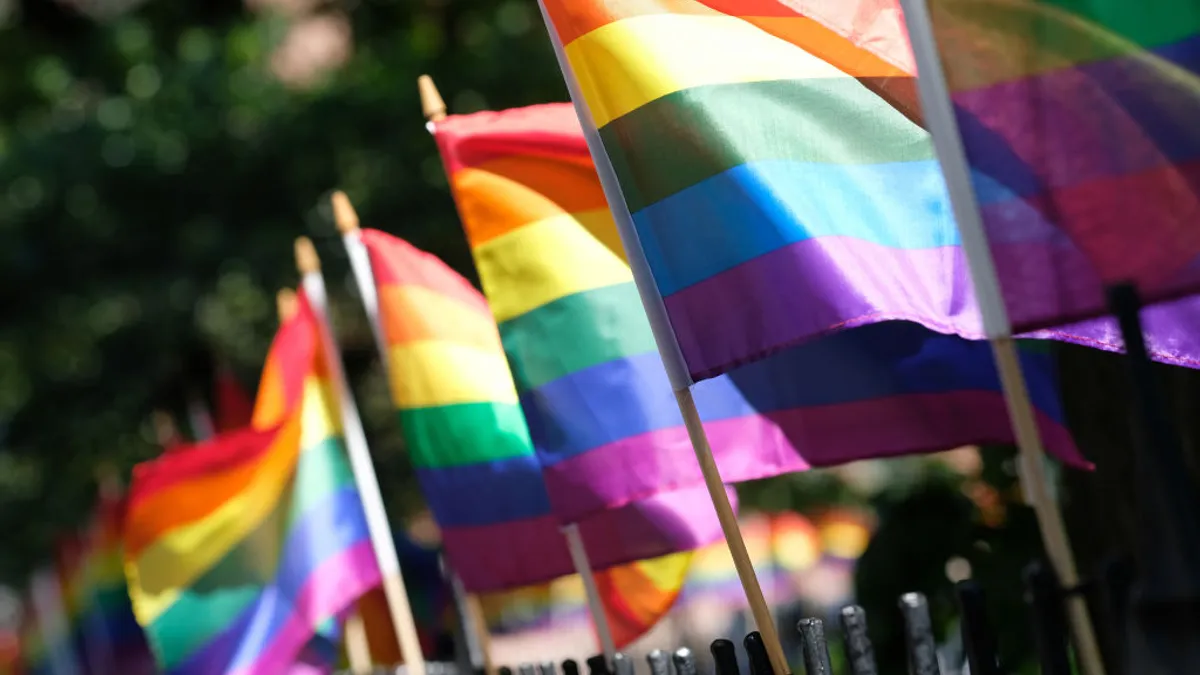Although most Americans still see diversity, equity and inclusion as part of corporate responsibility, fewer view it as a top business priority now, according to an Oct. 23 report from Gallup and Bentley University.
In a survey, 69% of U.S. adults said it’s important for businesses to promote DEI, falling from 78% in 2022 and marking the lowest level since tracking began that year.
Notably, only 35% said businesses do a good job at promoting DEI, also a new low from 42% in 2022.
In 2025, DEI and other corporate responsibility initiatives remain under the microscope amid federal challenges. HR leaders may continue to face scrutiny in messaging and compliance, an attorney told HR Dive, and should refocus on the basics that “all are welcome.”
For instance, HR professionals can advocate for DEI's business case by connecting diversity initiatives to measurable outcomes such as retention, engagement and productivity, the HR Certification Institute’s CEO told HR Dive. Even if company stakeholders challenge “DEI” as a term, employers can emphasize equity and inclusion by focusing on fairness and opportunity, she said.
In the Gallup survey of more than 3,000 U.S. adults, other expectations for corporate responsibility remain high. For instance, nearly all survey respondents said companies should provide quality healthcare for employees (96%), support local communities (95%), operate sustainably (91%), offer mental health support (91%) and try to improve the world in a broad sense (90%).
However, respondents were much less likely to say that companies actually deliver on healthcare benefits (29%), sustainability (26%), mental health support (28%), community improvement (35%) and making the world better (28%).
When considering DEI, a majority of survey respondents said businesses with a diverse workforce are more innovative (64%) and more profitable (61%).
More than half of Americans also said companies should take a public stance on certain issues, such as diversity, free speech, healthcare, mental health and climate change. On the other hand, less than half said companies should speak out on international conflicts, gun laws, abortion or religion.
Throughout 2025, employers have responded to shifts in the DEI landscape by either stepping up or stepping back. Looking ahead, more companies are expected to take a stand — one way or another — on shareholder proposals, lawsuits and company policies in 2026.













